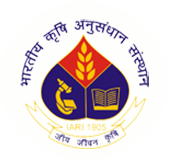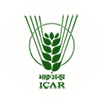Stress response in pathogenic bacteria /
Stress response in pathogenic bacteria /
edited by Stephen P. Kidd, University of Adelaide, Australia.
- 1 online resource (x, 306 pages) : illustrations, charts.
- Advances in molecular and cellular microbiology ; 19 .
- Advances in molecular and cellular microbiology ; 19. .
Includes bibliographical references and index.
Oxidative and nitrosative stress defence systems in escherichia coli and pseudomonas aeruginosa : a model organism of study versus a human opportunistic pathogen / James A. Imlay and Daniel J. Hassett -- Coordinated regulation of stress and virulence adaptations in stages of haemophilus pathogenesis / Sandy M.S. Wong and Brian J. Akerley -- Nitric oxide stress in escherichia coli and salmonella / Stephen Spiro -- Nitric oxide and gram-positive pathogens : host triggers and bacterial defence mechanisms / Glen Ulett and Adam Potter -- Novel regulation in response to host-generated stresses : the MerR family of regulators in pathogenic bacteria / Stephen P. Kidd -- Stress responses in the pathogenic neisseria : overlapping regulons and sRNA regulation / Stuart A. Hill -- Acid survival mechanisms of bacterial pathogens of the digestive tract / Hanan Gancz and D. Scott Merrell -- Urease and the bacterial acid stress response / Peter T. Chivers -- Secretion systems and metabolism in the pathogenic yersiniae / Matthew S. Francis -- Response of neisseria gonorrhoeae to oxygen limitation and excess / Jeffery A. Cole -- Copper and zinc stress in bacteria / Selina R. Clayton, Karin Heurlier, Taku Oshima and Jon. L. Hobman -- Metal ion sensing in mycobacterium tuberculosis / Jennifer S. Cavet -- Salmonella and the host in the battle for iron / Elisa Deriu, Janet Z. Liu and Manuela Raffatellu.
Access limited to subscribing institution.
The ability of pathogenic bacteria to adapt to the various chemical, biochemical and physical conditions of the different anatomical niches within the human host, as well as an ability to respond to the direct stresses which are generated in these environments, is a central feature of infectious diseases and the outcome of bacterial infection. Our understanding of the mechanisms used by numerous bacteria for this survival, and indeed the nature of the stresses within the human host, has increased significantly over the past 5-10 years. These key aspects of this rapidly developing field will be the central theme of this book. Specifically, it covers: the generation of stresses by the host immune system, the bacterial response to reactive chemicals as a result of the host response to bacterial infection (including reactive oxygen and reactive nitrogen species), bacterial metabolism as part of the stress response and the bacterial adaptation to environmental conditions of anatomical niches such as the gut, mouth and urogenital tract (these conditions include acid conditions, nutrient stress and low oxygen levels), and increasingly, the importance of different metal ions in the pathogenesis and survival of specific bacteria. This volume uses experts in the research of each of these areas to develop a book that provides a comprehensive outline of the current understanding of this field, the latest developments and where future research is likely to be directed.
Pathogenic bacteria.
Stress (Physiology)
Bacteria--pathogenicity.
Bacterial Physiological Phenomena.
Stress, Physiological--physiology.
Human Immunology and Allergology, (New March 2000)
Prion, Viral, Bacterial and Fungal Pathogens of Humans, (New March 2000)
Biochemistry and Physiology of Microorganisms, (New March 2000)
Bacteria.
Bacterial diseases.
Chemicals.
Defence mechanisms.
Digestive tract.
Hosts.
Immune system.
Infectious diseases.
Ions.
Mouth.
Pathogenesis.
Pathogens.
Reactive oxygen species.
Stress.
Survival.
Urogenital system.
Electronic books.
QR46 / .S79 2011eb
616.07/1
Includes bibliographical references and index.
Oxidative and nitrosative stress defence systems in escherichia coli and pseudomonas aeruginosa : a model organism of study versus a human opportunistic pathogen / James A. Imlay and Daniel J. Hassett -- Coordinated regulation of stress and virulence adaptations in stages of haemophilus pathogenesis / Sandy M.S. Wong and Brian J. Akerley -- Nitric oxide stress in escherichia coli and salmonella / Stephen Spiro -- Nitric oxide and gram-positive pathogens : host triggers and bacterial defence mechanisms / Glen Ulett and Adam Potter -- Novel regulation in response to host-generated stresses : the MerR family of regulators in pathogenic bacteria / Stephen P. Kidd -- Stress responses in the pathogenic neisseria : overlapping regulons and sRNA regulation / Stuart A. Hill -- Acid survival mechanisms of bacterial pathogens of the digestive tract / Hanan Gancz and D. Scott Merrell -- Urease and the bacterial acid stress response / Peter T. Chivers -- Secretion systems and metabolism in the pathogenic yersiniae / Matthew S. Francis -- Response of neisseria gonorrhoeae to oxygen limitation and excess / Jeffery A. Cole -- Copper and zinc stress in bacteria / Selina R. Clayton, Karin Heurlier, Taku Oshima and Jon. L. Hobman -- Metal ion sensing in mycobacterium tuberculosis / Jennifer S. Cavet -- Salmonella and the host in the battle for iron / Elisa Deriu, Janet Z. Liu and Manuela Raffatellu.
Access limited to subscribing institution.
The ability of pathogenic bacteria to adapt to the various chemical, biochemical and physical conditions of the different anatomical niches within the human host, as well as an ability to respond to the direct stresses which are generated in these environments, is a central feature of infectious diseases and the outcome of bacterial infection. Our understanding of the mechanisms used by numerous bacteria for this survival, and indeed the nature of the stresses within the human host, has increased significantly over the past 5-10 years. These key aspects of this rapidly developing field will be the central theme of this book. Specifically, it covers: the generation of stresses by the host immune system, the bacterial response to reactive chemicals as a result of the host response to bacterial infection (including reactive oxygen and reactive nitrogen species), bacterial metabolism as part of the stress response and the bacterial adaptation to environmental conditions of anatomical niches such as the gut, mouth and urogenital tract (these conditions include acid conditions, nutrient stress and low oxygen levels), and increasingly, the importance of different metal ions in the pathogenesis and survival of specific bacteria. This volume uses experts in the research of each of these areas to develop a book that provides a comprehensive outline of the current understanding of this field, the latest developments and where future research is likely to be directed.
Pathogenic bacteria.
Stress (Physiology)
Bacteria--pathogenicity.
Bacterial Physiological Phenomena.
Stress, Physiological--physiology.
Human Immunology and Allergology, (New March 2000)
Prion, Viral, Bacterial and Fungal Pathogens of Humans, (New March 2000)
Biochemistry and Physiology of Microorganisms, (New March 2000)
Bacteria.
Bacterial diseases.
Chemicals.
Defence mechanisms.
Digestive tract.
Hosts.
Immune system.
Infectious diseases.
Ions.
Mouth.
Pathogenesis.
Pathogens.
Reactive oxygen species.
Stress.
Survival.
Urogenital system.
Electronic books.
QR46 / .S79 2011eb
616.07/1

